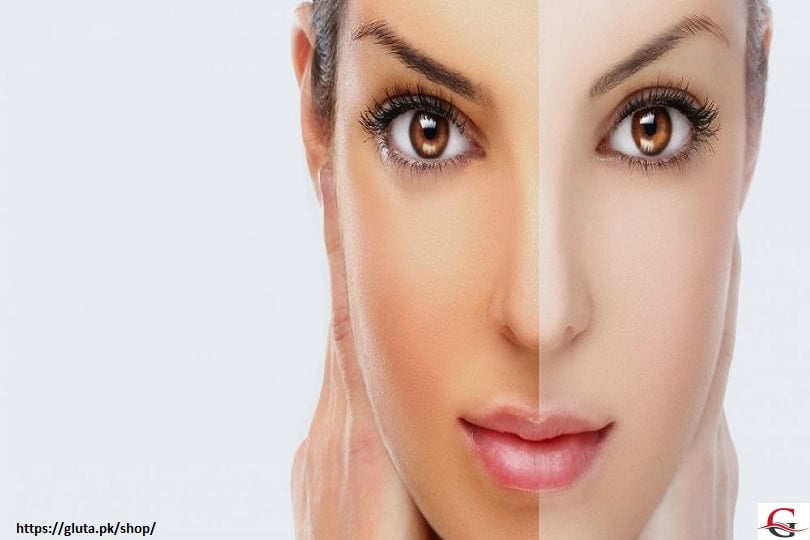Whitening creams are skincare products that are designed to lighten the skin tone. They are also known as skin lightening creams, bleaching creams, or depigmentation creams. Whitening creams work by reducing the production of melanin, the pigment that gives skin its color.
Why do people use whitening creams?

People use whitening creams for a variety of reasons. Some people use them to lighten their overall skin tone, while others use them to treat specific areas of hyperpigmentation, such as dark spots, age spots, and melasma. Whitening creams can also be used to even out the skin tone and improve the overall appearance of the skin. These products are for providing glow and whitening shine with the help of chemicals.

What are the benefits of using whitening creams?
Whitening creams can offer a number of benefits, including:
- Lightening the skin tone
- Reducing hyperpigmentation
- Evening out the skin tone
- Improving the overall appearance of the skin
Quick Take Away 8 Whitening Cream Benefits
Evens Skin Tone: Whitening creams help to even out skin tone by reducing the appearance of dark spots, hyperpigmentation, and discoloration.
Brightens Complexion: These creams contain ingredients that brighten the skin, giving it a more radiant and luminous appearance.
Reduces Sun Damage: Whitening creams can help to minimize the effects of sun damage, such as sunspots and freckles, resulting in a clearer complexion.
Improves Skin Texture: Regular use of whitening creams can lead to smoother and softer skin texture, reducing the appearance of fine lines and wrinkles.
Boosts Confidence: Achieving a brighter and more even skin tone can boost confidence and self-esteem, allowing individuals to feel more comfortable and empowered in their skin.
Targets Specific Concerns: Many whitening creams are formulated to target specific skincare concerns, such as acne scars, melasma, or dullness, providing targeted treatment for more effective results.
Hydrates and Nourishes: Some whitening creams contain moisturizing ingredients that help to hydrate and nourish the skin, leaving it feeling soft, supple, and moisturized.
Protects Against Further Discoloration: By preventing melanin production or inhibiting tyrosinase activity, whitening creams can help to protect the skin from further discoloration and maintain a brighter complexion over time.
What are the different types?
There are two main types of whitening creams: over-the-counter (OTC) and prescription. OTC whitening creams typically contain lower concentrations of active ingredients, while prescription whitening creams contain higher concentrations.
OTC whitening creams are generally safe for most people to use, but they may not be as effective as prescription whitening creams. Prescription whitening creams are more effective, but they may also cause more side effects.

How do whitening creams work?
Whitening creams work by reducing the production of melanin, the pigment that gives skin its color. They do this by inhibiting the activity of tyrosinase, an enzyme that is involved in melanin production.
There are a number of different ingredients that can be used in whitening creams, including:
- Hydroquinone: Hydroquinone is the most effective whitening ingredient available. It is available in both OTC and prescription products.
- Kojic acid: Kojic acid is a natural ingredient that is derived from mushrooms. It is less effective than hydroquinone, but it is also less likely to cause side effects.
- Arbutin: Arbutin is another natural ingredient that is derived from bearberry. It is less effective than hydroquinone and kojic acid, but it is also less likely to cause side effects.
- Vitamin C: Vitamin C is a natural antioxidant that can help to reduce melanin production. It is generally considered to be safe for most people to use.
- Retinoids: Retinoids are derivatives of vitamin A. They can help to reduce melanin production and exfoliate the skin. Retinoids can be irritating to the skin, so they should be used under the supervision of a dermatologist.
Whitening creams can be used on the face, neck, and hands. They are typically applied to the skin once or twice a day. It may take several weeks or months to see results.
It is important to note that whitening creams cannot change your natural skin tone. They can only lighten the skin tone that you have.

The Science Behind
Whitening creams work by reducing the production of melanin, the pigment that gives skin its color. Melanin is produced by cells called melanocytes, which are found in the epidermis, the outermost layer of the skin. When melanocytes are stimulated, they produce more melanin, which can lead to hyperpigmentation, such as dark spots, age spots, and melasma.
Whitening creams work by inhibiting the activity of tyrosinase, an enzyme that is involved in melanin production. There are a number of different ingredients that can be used in whitening creams, including:
- Hydroquinone: Hydroquinone is the most effective whitening ingredient available. It works by inhibiting the activity of tyrosinase and by blocking the transfer of melanin from melanocytes to keratinocytes, the cells that make up the top layer of the skin.
- Kojic acid: Kojic acid is a natural ingredient that is derived from mushrooms. It works by inhibiting the activity of tyrosinase.
- Arbutin: Arbutin is another natural ingredient that is derived from bearberry. It works by inhibiting the activity of tyrosinase and by blocking the transfer of melanin from melanocytes to keratinocytes.
- Vitamin C: Vitamin C is a natural antioxidant that can help to reduce melanin production. It also helps to protect the skin from sun damage, which can trigger melanin production.
- Retinoids: Retinoids are derivatives of vitamin A. They can help to reduce melanin production and exfoliate the skin. Retinoids can be irritating to the skin, so they should be used under the supervision of a dermatologist.
The Different Ingredients
Here is a more detailed look at some of the most common ingredients in whitening creams and how they work:
- Hydroquinone: Hydroquinone is the most effective whitening ingredient available. It works by inhibiting the activity of tyrosinase and by blocking the transfer of melanin from melanocytes to keratinocytes. Hydroquinone is available in both OTC and prescription products. OTC hydroquinone products typically contain lower concentrations of hydroquinone, while prescription hydroquinone products contain higher concentrations.
- Kojic acid: Kojic acid is a natural ingredient that is derived from mushrooms. It works by inhibiting the activity of tyrosinase. Kojic acid is generally considered to be safe for most people to use, but it can cause irritation in some people.
- Arbutin: Arbutin is another natural ingredient that is derived from bearberry. It works by inhibiting the activity of tyrosinase and by blocking the transfer of melanin from melanocytes to keratinocytes. Arbutin is generally considered to be safe for most people to use, but it can cause irritation in some people.
- Vitamin C: Vitamin C is a natural antioxidant that can help to reduce melanin production. It also helps to protect the skin from sun damage, which can trigger melanin production. Vitamin C is generally considered to be safe for most people to use.
- Retinoids: Retinoids are derivatives of vitamin A. They can help to reduce melanin production and exfoliate the skin. Retinoids can be irritating to the skin, so they should be used under the supervision of a dermatologist.

The Safety Measures You Need to Know
Whitening creams are generally considered to be safe for most people to use, but there are some potential side effects. The most common side effects of whitening creams are skin irritation and dryness. Other potential side effects include:
- Redness
- Itching
- Burning
- Blisters
- Rashes
- Allergic reactions
Hydroquinone is the most likely ingredient to cause side effects. Hydroquinone can also cause ochronosis, a condition characterized by blue-black or gray discoloration of the skin. Ochronosis is most common in people who use hydroquinone for long periods of time.
If you are considering using a whitening cream as a treatment for your skin, it is important to talk to your dermatologist first. Your dermatologist can help you choose a safe and effective product for your skin type and needs.
How to Use Whitening Creams Safely and Effectively
To use whitening creams safely and effectively, follow these tips:
- Choose a whitening cream that is appropriate for your skin type. If you have sensitive skin, choose a product that is fragrance-free and non-comedogenic (does not clog pores).
- Start with a low concentration of the active ingredient and gradually increase the concentration as tolerated.
- Apply the whitening cream to the affected area once or twice a day.
- Use a sunscreen with an SPF of 30 or higher every day, even on cloudy days.
- Avoid using whitening creams if you are pregnant or breastfeeding.
If you experience any side effects from using a whitening cream, stop using it immediately and see your dermatologist.

Choosing The Right For Your Skin Type
When choosing a whitening cream, it is important to consider your skin type. Here are a few tips:
- Dry skin: If you have dry skin, look for a whitening cream that is moisturizing and non-irritating. Avoid products that contain alcohol or harsh fragrances.
- Oily skin: If you have oily skin, look for a whitening cream that is oil-free and non-comedogenic (meaning it won’t clog your pores).
- Sensitive skin: If you have sensitive skin, look for a whitening cream that is hypoallergenic and fragrance-free.
- Combination skin: If you have combination skin, look for a whitening cream that is lightweight and non-greasy. It should also be moisturizing enough for your dry areas without clogging your pores in oily areas.
How to apply whitening creams
To apply a whitening cream, simply cleanse your face and pat it dry. Apply a small amount of cream to your face and neck, and massage it in gently until it is absorbed.
How often to use
Whitening creams can be used once or twice a day, depending on your skin type and the product you are using. If you have sensitive skin, it is best to start by using a whitening cream once a day and see how your skin tolerates it. You can gradually increase the frequency to twice a day if needed.
What to expect when using creams
Most whitening creams work by gradually inhibiting the production of melanin, the pigment that gives skin its color. As a result, it may take several weeks or even months to see noticeable results. It is important to be patient and consistent with your use of the product in order to achieve the desired results.
Common myths about whitening creams
Here are a few common myths about whitening creams:
- Whitening creams can damage your skin. This is not true as long as you choose a whitening cream that is safe and appropriate for your skin type. Avoid products that contain harsh chemicals or heavy metals, such as mercury or lead.
- Whitening creams can make your skin sensitive to the sun. While some whitening creams can make your skin more sensitive to the sun, there are many products available that contain sunscreen. It is important to wear sunscreen every day, even if you are using a whitening cream.
- Whitening creams can change your natural skin tone. Whitening creams can only lighten your skin tone by a few shades. They cannot change your natural skin tone altogether.
If you have any concerns about using whitening creams, be sure to talk to your dermatologist. They can help you choose a safe and effective product for your skin type and goals.
Whitening creams can make your skin lighter
False. Whitening creams can only lighten your skin tone by a few shades. They cannot change your natural skin tone altogether. Additionally, it is important to note that whitening creams should not be used to change your natural skin tone. Your natural skin tone is beautiful, and you should be proud of it.
Whitening creams can cause cancer.
True. Some whitening creams contain harsh chemicals that can be harmful to your skin. In some cases, these chemicals can even cause cancer. It is important to talk to your doctor before using any whitening cream, and to choose a product that is safe for your skin type.
Whitening creams are only for women.
False. Whitening creams can be used by people of all genders. However, it is important to note that whitening creams should not be used to change your natural skin tone. Your natural skin tone is beautiful, and you should be proud of it.
If you are considering using a whitening cream, it is important to talk to your doctor first. They can help you choose a product that is safe for your skin type and goals, and they can monitor you for any side effects.
Whitening creams are like makeup: they can enhance your natural beauty, but they shouldn’t be used to change who you are. Your natural skin tone is beautiful, and you should be proud of it.
If you’re considering using a whitening cream, talk to your doctor first. They can help you choose a safe and effective product for your skin type and goals.
Conclusion
Whitening creams are topical products that are used to lighten the skin tone. They work by inhibiting the production of melanin, the pigment that gives skin its color. Whitening creams can be used to treat a variety of skin conditions, including hyperpigmentation, age spots, and acne scars. They can also be used to lighten the overall complexion.
However, it is important to note that whitening creams should not be used to change your natural skin tone. Your natural skin tone is beautiful, and you should be proud of it. Additionally, it is important to talk to your doctor before using any whitening cream, as some products can have side effects, including cancer.
If you are considering using a whitening cream, be sure to choose a product that is safe and appropriate for your skin type. Avoid products that contain harsh chemicals or heavy metals, such as mercury or lead. It is also important to wear sunscreen every day, even if you are using a whitening cream, as some products can make your skin more sensitive to the sun.
Here are some additional tips for using whitening creams safely and effectively:
- Start by using the whitening cream once a day and see how your skin tolerates it. You can gradually increase the frequency to twice a day if needed.
- Apply a small amount of whitening cream to your face and neck, and massage it in gently until it is absorbed.
- Be sure to wear sunscreen every day, even if you are using a whitening cream.
- Stop using the whitening cream if you experience any side effects, such as skin irritation, redness, or dryness.
If you have any questions or concerns about using whitening creams, be sure to talk to your doctor. Or you can get online appointment from a skin and beauty specialist.

Nadia is a creative and driven individual with a passion for writing and a talent for product development. Born and raised in Pakistan, Nadia always had a flair for creative expression and was drawn to the world of content creation from a young age.
After completing her education in journalism and creative writing, Nadia embarked on a career as a content creator, working for several prominent publications and digital media companies in Pakistan. Her work quickly gained recognition for its innovative approach and compelling storytelling, and she soon became known as one of the most talented and influential writers in the industry.
In her role at gluta.pk, Nadia is responsible for creating engaging and informative content that helps customers learn about the company’s products and make informed purchasing decisions. She also works closely with the product development team to develop and launch new products that meet the needs and preferences of gluta.pk’s customers.


